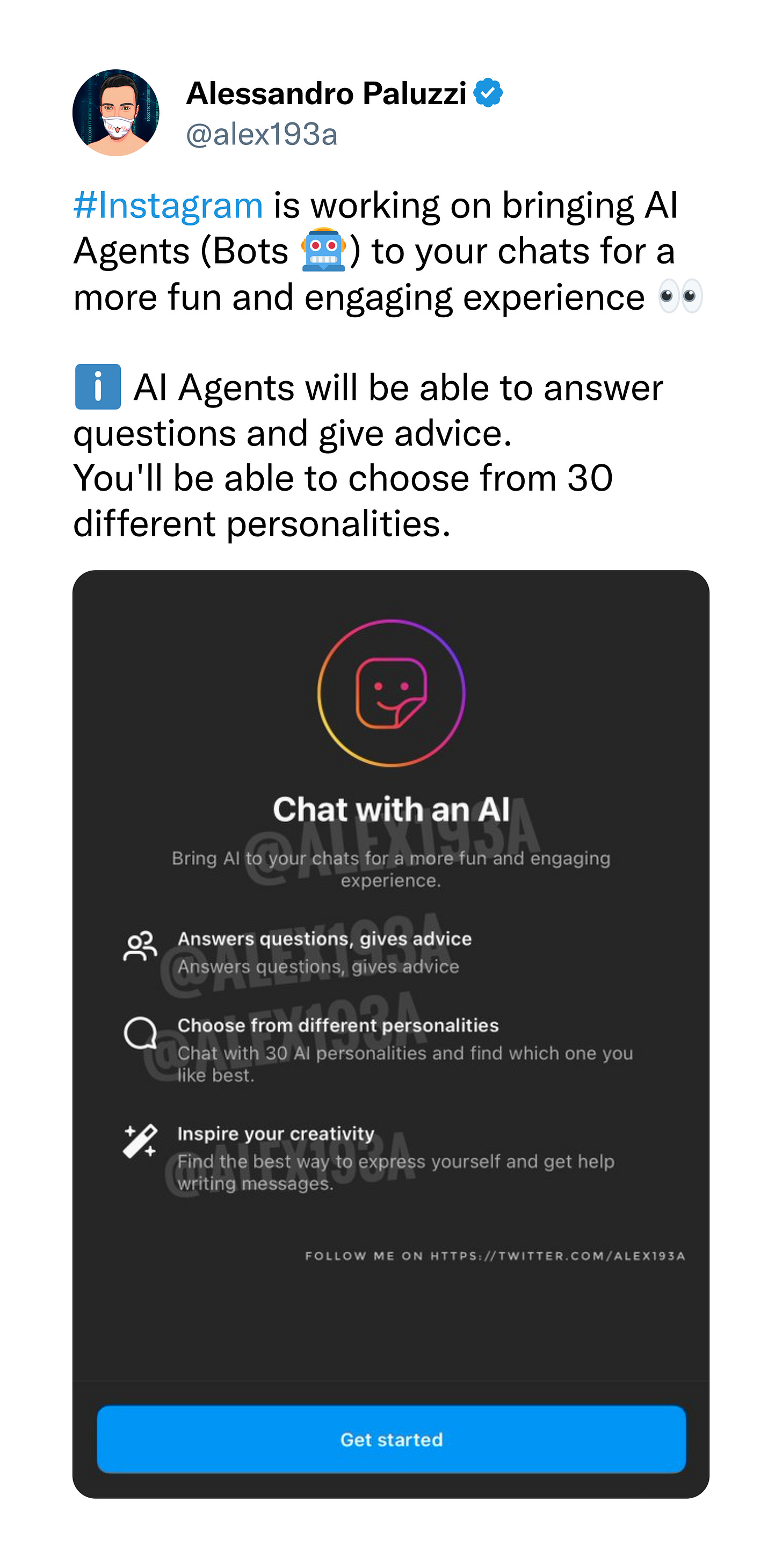AI Roundup 018: Apple's "AI" aversion
June 9, 2023
Apple's “AI” aversion
Despite unveiling a whole lot of impressive technology at WWDC this week, Apple presenters never once said "AI." Instead, execs used terms like "machine learning" and "ML."
Between the lines:
The move makes sense for Apple, which very much does not want to be seen as riding a hype train.
But Apple products contain many impressive AI features, including the Vision Pro's 3D avatars created by scanning your face. The company also acknowledged that its new M2 Ultra chip is powerful enough to train large language models.
That said, the world is still waiting to see how generative AI will impact Siri and Apple's other assistive technology.
Elsewhere in the FAANG free-for-all:
Google's Search Generative Experience is rolling out, to less than stellar responses.
Mark Zuckerberg announced his plan to add generative AI text, images, and videos to Facebook, Instagram, and WhatsApp.
Microsoft now offers GPT-3 and GPT-4 to government customers, as the US DoD plans to experiment with the technology.
People are worried about AI copyright
A publishing trade group reminded members that AI tools trained on copyright content likely run afoul of IP laws. The association - which includes the New York Times, the Washington Post, Disney, and NBC - wants to help publishers navigate generative AI.
Why it matters:
The media has been preparing to confront Big Tech over generative AI for months.
Tech companies know this - Adobe has offered "full indemnification" for any business sued for using its Firefly image generation tool.
And it's not a US-only conflict: last week, Getty asked London's High Court to block UK sales of Stable Diffusion over copyright concerns.
Elsewhere in AI anxiety:
It turns out the killer drone strike simulation from last week never happened. The USAF official involved says he "misspoke."
The FBI has issued a warning over an uptick in extortion schemes involving fake nudes created with AI tools.
A radio host is suing OpenAI over a ChatGPT hallucination. The lawsuit seems superfluous, but as the first of its kind, we don't know yet how it will play out.
Not everyone is worried, though:
Venture capitalist Marc Andreessen has a long read on why AI will save the world. It's worthwhile food for thought, but be sure to add a pinch of salt.
AI is bringing San Francisco's prodigal sons (and daughters) home. The NY Times looks at tech founders who left SF during the pandemic and are returning to participate in the AI boom.
Yet another chatbot
Instagram is rumored to be adding an AI chatbot feature to its app. This is despite Snapchat's bumpy rollout of its "My AI" chatbot.
Why it matters:
While GPT-4 is a technological marvel, it's not obvious why every product needs a chatbot.
Conversational UX sometimes makes sense - the company behind Replika is launching Blush, a chatbot to help users with "relationship and intimacy" skills.
But we're finding that they're not suited for every situation. Google has constantly been patching Bard to try to make it good - the latest update aims to improve math and coding.
Things happen
OpenAI's GPT best practices. StackOverflow mods strike over new AI rules. DeSantis attack ad uses fake AI images of Trump. The Frost, a 12-minute film created using DALL-E. Sci-fi author Ted Chiang on AI. DeepMind AI makes a C++ sorting algorithm 70% faster. The creator of Black Mirror on AI. Understanding GPT tokenizers. WordPress.com's new AI blog writing tool.
Last week’s roundup
AI Roundup 017: Extinction risk
"Mitigating the risk of extinction from AI should be a global priority alongside other societal-scale risks such as pandemics and nuclear war."
The Center for AI Safety released a 22-word statement on AI risk.








Not talking about AI is the new talking about AI.